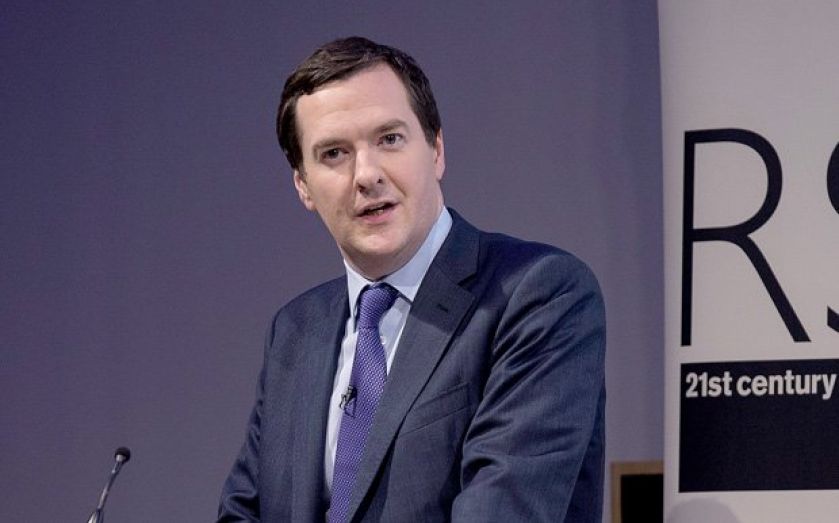As the public finances deteriorated in August, has Osborne given up on tackling the deficit?

Scott Corfe, senior economist at the Centre for Economics and Business Research, says Yes.
One of the great myths of the current parliament is that it has been dominated by austerity. The figures show that this clearly isn’t the case. The government is struggling to get the deficit down. Borrowing in the fiscal year to date is £2.6bn higher than a year ago.
And this is despite the strong economy bringing in more taxes in many areas. Over the same period, VAT receipts have risen by 4.6 per cent while the housing market recovery has led to a 26 per cent surge in stamp duty revenues. This has been more than offset by continued growth in government expenditure.
The failure to get to grips with public spending in the current parliament will have implications for the next one. After May 2015, whoever is in power will need to progress fiscal austerity and bring down government spending. It’s unreasonable to expect taxes alone to restore the public finances to good order.
David Kern, chief economist at the British Chambers of Commerce, says No.
The borrowing increases in August are disappointing but hardly surprising. The figures provide a timely reminder that cutting the deficit will prove to be a long and difficult job. But it would be wrong to assume that the government has given up on its aim of cutting the deficit altogether. Giving up is not a realistic option, given the UK’s need to maintain a high credit rating in global markets.
The sharp falls in oil and gas output since the crisis, and problems facing the UK financial sector, have created a major hole in the UK’s ability to generate tax revenues, even when growth improves. The government must continue to reduce the share of current public spending to GDP, as this is essential for a lasting recovery.
We have consistently supported George Osborne’s commitment to a tough but flexible strategy of cutting the deficit since 2010. But to secure a sustainable recovery, it must be supplemented by measures that will support long-term economic growth.